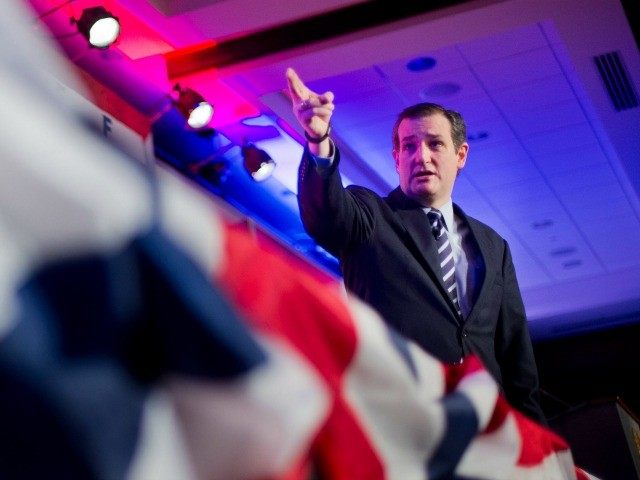Time was, the New York Daily News didn’t think much of Donald Trump’s quest for a birth certificate. The venerable tabloid mocked Trump when the builder asked questions about where Barack Obama entered the world. But the paper is now reporting that Trump is playing the birther card against Texas Senator Ted Cruz.
A Canadian-born for U.S. president? Not so fast, says Donald Trump.
The famously outspoken “birther,” who ruthlessly questioned President Obama’s U.S. birth and hence constitutional right to the White House, apparently doesn’t plan on giving Sen. Ted Cruz any exceptions.
“Well he’s got, you know, a hurdle that nobody else seems to have at this moment,” the millionaire real estate mogul told MyFoxNY by phone Monday while referencing the Texas senator’s Canadian roots.
The Washington Post, of all places, summarizes the issue but stops short of completely ruling it out as a valid challenge … provided someone wants to take it to court.
Legal scholars generally agree that Cruz meets that requirement, and Cruz’s office agrees. But it also remains somewhat untested in the courts.
While no president-elect has formally tested the “natural-born citizen” requirement, several have run for president with that question hanging over their candidacies.
The lack of a court challenge on the issue it legitimate; however, there is a fair amount of legal scholarship on the issue. The New York Times dipped its toes into the birther water, as well.
Ahead of Senator Ted Cruz’s announcement that he would be running for president of the United States, the name of another country kept coming up: Canada.
Critics of Mr. Cruz sought to stir controversy about his candidacy on social media, noting that he was born in Canada and saying that he could never legally become president.
The trope is a common one for would-be presidents, and President Obama and Senator John McCain both faced questions about their birthplaces and eligibility as recently as 2008.
Finally, the Washington Post revisits the topic in detail with a more clear verdict that Cruz qualifies. Meanwhile, this below from the original Daily News item basically reaches the same conclusion. Given Cruz’s conservative nature, if he does somehow manage to win the White House at the ballot box, Progressives will likely make certain he has to win it, a second time — in the courts.
While a fringe minority of scholars claim that a “natural-born” citizen must have been born on U.S. soil, the prevailing legal interpretation is that “natural-born” simply means being born with U.S. citizen (as opposed to acquiring it later via naturalization).
A detailed memo produced by the Congressional Research Service in 2009 — to help quell “birthers” claiming that President Obama hadn’t been eligible for the presidency — largely, if not altogether, put the issue to rest.
“The weight of scholarly legal and historical opinion appears to support the notion that ‘natural born Citizen’ means one who is entitled under the Constitution or laws of the United States to U.S. citizenship ‘at birth’ or ‘by birth,’ including any child born ‘in’ the United States, the children of United States citizens born abroad, and those born abroad of one citizen parents who has met U.S. residency requirements,” the agency said in the memo.
Two prominent legal scholars addressed the issue more recently in a Harvard Law Review article published earlier this month, writing “that here is no question that Sen. Cruz has been a citizen from birth and is thus a ‘natural born Citizen’ within the meaning of the Constitution.”
“As Congress has recognized since the Founding, a person born abroad to a U.S. citizen parent is generally a U.S. citizen from birth with no need for naturalization,” Neal Katyal and Paul Clement wrote in their article. “And the phrase ‘natural born Citizen’ in the Constitution encompasses all such citizens from birth … Thus, an individual born to a U.S. citizen parent — whether in California or Canada or the Canal Zone — is a U.S. citizen from birth and is fully eligible to serve as President if the people so choose.”
Scholars agree that the only reason there still exists even the slightest gray area regarding the issue is that the question has never been tested in the U.S. court system.

COMMENTS
Please let us know if you're having issues with commenting.